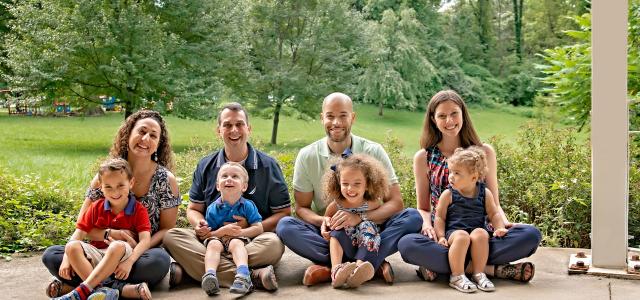
ESTATE PLANNER: The ULTIMATE Strategic Partner
"Most time folks have a difficult time beginning the process. I go back to a saying and a phrase and a saying I've had in my mind since the 8th grade: "Begin the begin." Once you begin you're closer to the end then had you not begun at all. And I view the estate planning process as that. Once you get over that hurdle of beginning the estate planning process. There are [just] steps to take. You have your partners that help guide you through those steps [and] help build that roadmap for you You are then closer to completing that estate planning process."
Catherine has been a "friend of the firm" since before the establishment of Jason Howell Company as a registered investment advisory firm nearly 10 years ago. Her work in law and philanthropy has made her a strategic partner to both our company and many of our clients. Catherine's practice focuses on trust and estate planning as well as business planning. She advises clients with respect to the creation and implementation of simple and complex estate plans, including incapacity planning; elder law; guardianships and conservatorships; special needs trusts; health care decision making; estate and trust administration; probate administration; wealth preservation; asset protection; entity formation and maintenance, gift, estate and generation-skipping transfer tax planning; charitable planning; irrevocable trusts; donor advised funds; private foundations; family limited partnerships; and limited liability companies.
In less than 30 minutes, we asked Catherine to share:
+ Why estate planners are the ULTIMATE strategic partners
+ How estate planning has evolved over the years (especially since 2020)
+ How families avoid common estate planning mistakes
+ How family discussions (pre & post) make for happier outcomes
+ What OFP's onboarding and implementation process is like
+ How philanthropy plays a role in all of this
Jason Howell Company is a family wealth management firm that strengthens the finances of families making the transition from first generation success to family wealth. We envision a world where wealthy families give, grow and govern themselves in ways that enrich their local communities. We do this by reducing the fear, isolation and guilt associated with financial success.
Jason J. Howell, CFP®, CPWA®, CSRIC® and Douglas W. Tees, MBA, CFP® CAP®, CBDA have spent a lot of time in the Washington, DC area, and are aware that many people who are first generation wealth suffer from a kind of "financial imposter syndrome." Successful entrepreneurs and family businesses are always looking over their shoulder; government contractors worry about the next contract; former Capitol Hill staffers privately wonder if they should "feel bad" for the money they now make. Imposter syndrome is common among people who work for the many corporate headquarters based in this area as well. These feelings get in the way of properly managing family wealth. We empower them to get organized, build a team of advisors and make decisions.
Our typical "first generation wealth" families include dual income parents who work, save and have just the right amount of fun. For long-time, family owned businesses we focus on much family preservation as we do wealth preservation.
First generation wealth success stories and family business owners realize that they:
- Need to “do something” with the cash in their checking/savings
- Need to eventually diversify their portfolio away from the family business
- Need an investment strategy for “up” and “down” markets
- Need a plan to mitigate market, credit, inflation, and political risks
- Need to start tax planning instead of just tax paying
- Need to be sure they are choosing the right work benefits
- Need to reduce financial miscommunications between family members
- Need to separate business finances from personal finances
- Need to separate family wealth from individual wealth
- Need a plan to provide space for both family and individual philanthropy
- Need to plan for money while alive and for what happens after death

